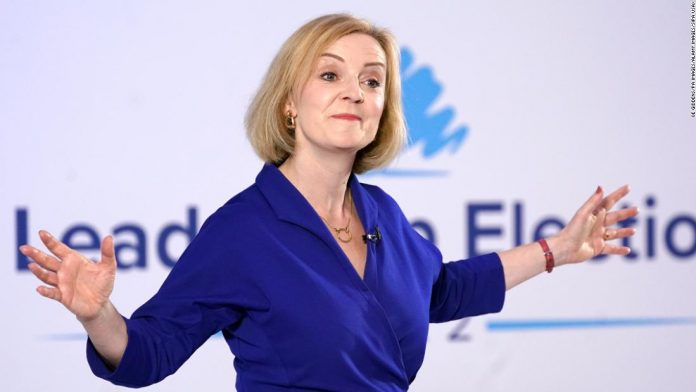
Liz Truss will become Britain’s new prime minister, but Deutsche Bank says policy announcements in the coming weeks will be crucial if the U.K. is to avoid extreme macroeconomic events, particularly a balance of payments crisis.
Sterling was fractionally higher against the dollar on Monday afternoon, trading just below $1.15, but Deutsche Bank FX Strategist Shreyas Gopal warned that the risks of a “sterling crisis” should not be underestimated.
“With the current account deficit already at record levels, sterling requires large capital inflows supported by improving investor confidence and falling inflation expectations. However, the opposite is happening,” Deutsche Bank said in a note Monday.
“The U.K. is suffering from the highest inflation rate in the G10 and a weakening growth outlook. A large, unfunded and untargeted fiscal expansion accompanied by potential changes to the Bank of England’s mandate could lead to an even bigger rise in inflation expectations and — at the extreme — the emergence of fiscal dominance.”
Trus suggested scrapping the Northern Ireland protocol — a key part of the post-Brexit withdrawal agreement between the U.K. and the European Union.
Gopal suggested that added uncertainty on trade policy would further muddy the macroeconomic picture and dent investor confidence.
“The risk premium on UK gilts is already rising, coincident with unusually large foreign outflows. If investor confidence erodes further, this dynamic could become a self-fulfilling balance of payments crisis whereby foreigners would refuse to fund the U.K. external deficit,” he said.
“A balance of payments funding crisis may sound extreme, but it is not unprecedented: a combination of aggressive fiscal spending, severe energy shock, and a slide in sterling ultimately resulted in the U.K. having recourse to an IMF loan in the mid 1970s,” Gopal said.
“Today, the UK does retain some key lines of defense against a sudden stop, but we worry that the risks are rising nevertheless.”









